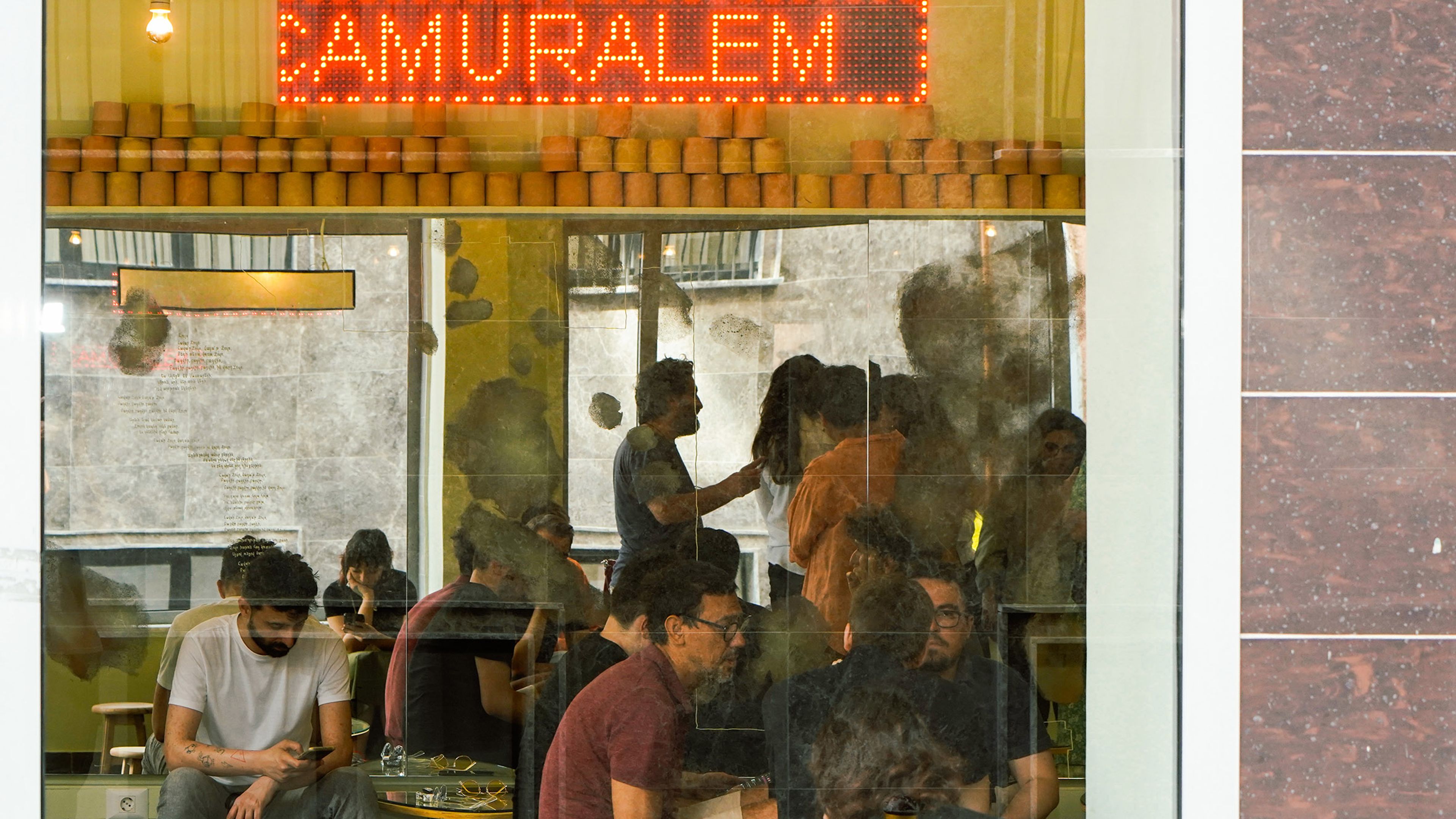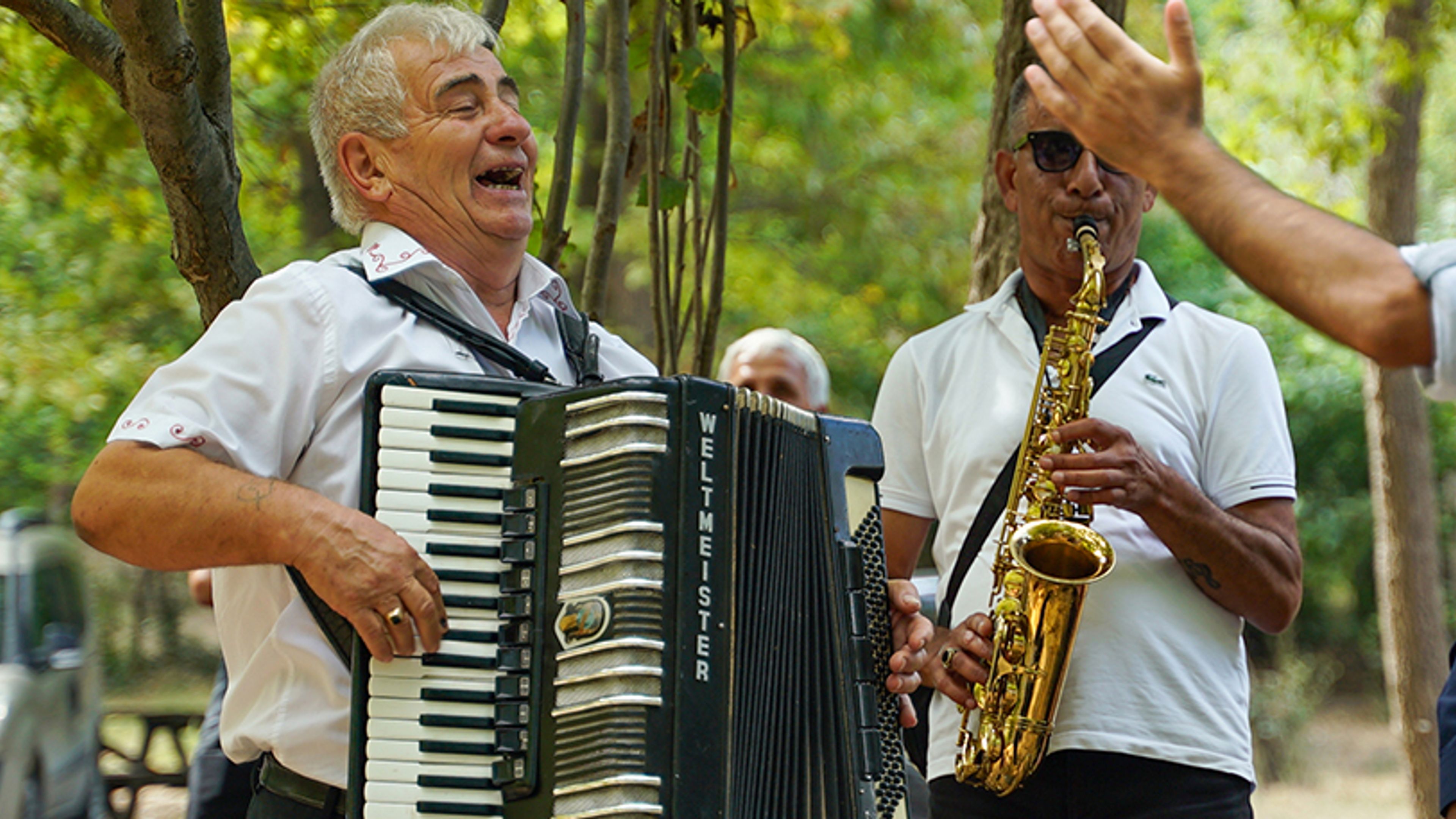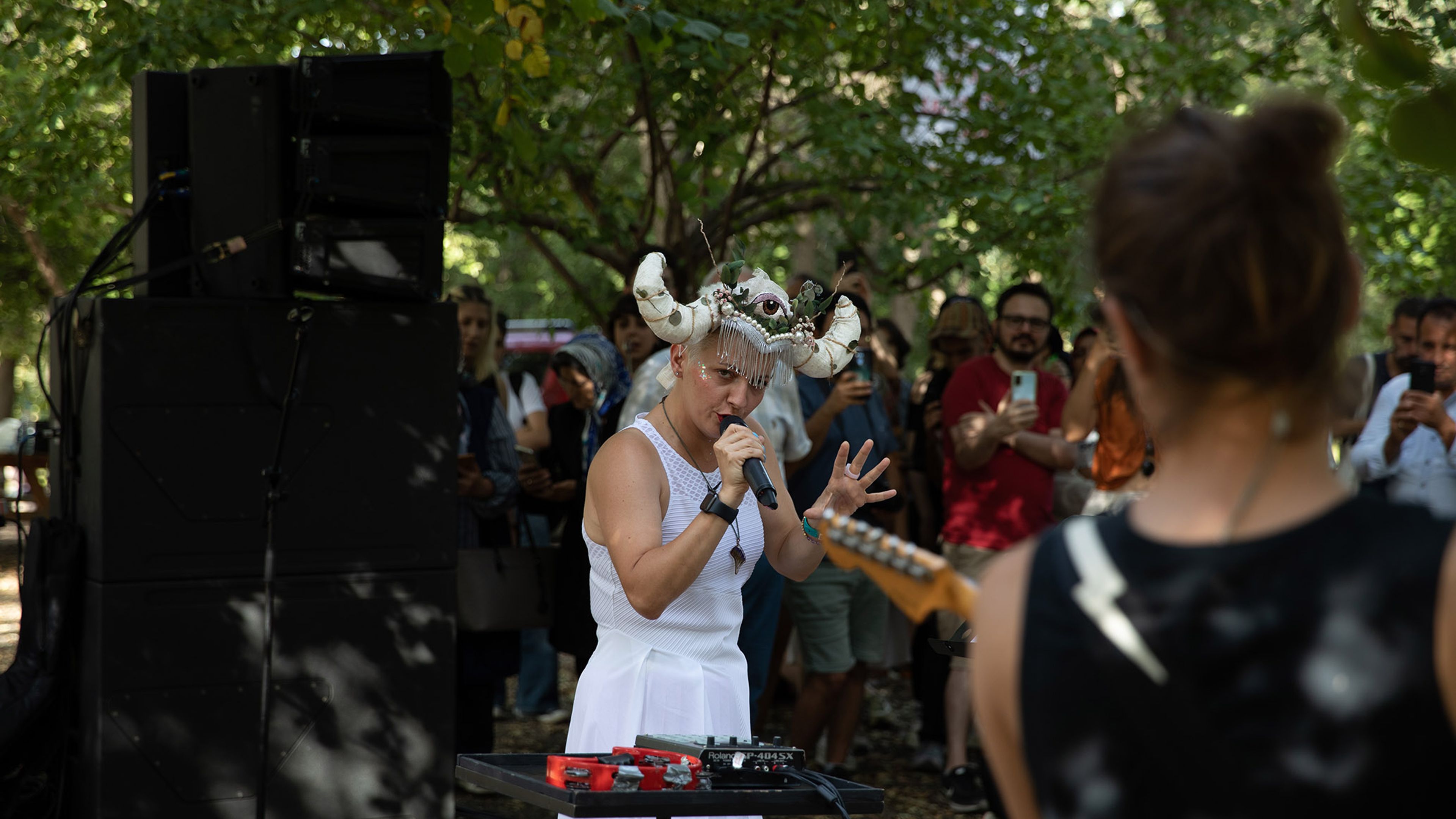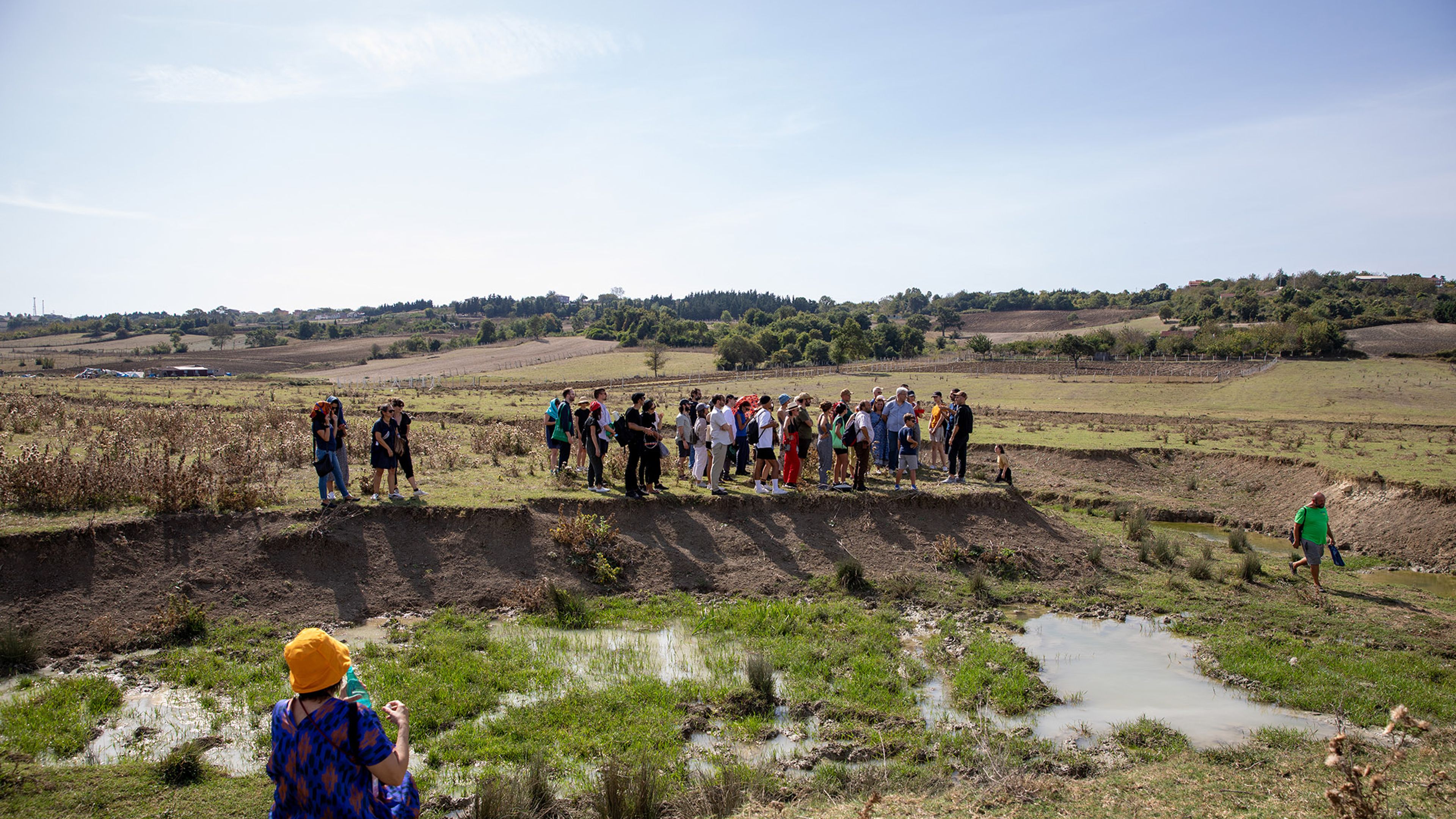In a season of wetland disappearance, celebrating the role of herders and free roaming species and spaces is crucial. The Station aims to preserve these landscapes through the permanence of pastoralist practices. Working with the residents of the outskirts of Istanbul, a post-industrial area that has partially reflooded, opens up the possibility of using traditional Turkish desserts to care for wetland ecologies.
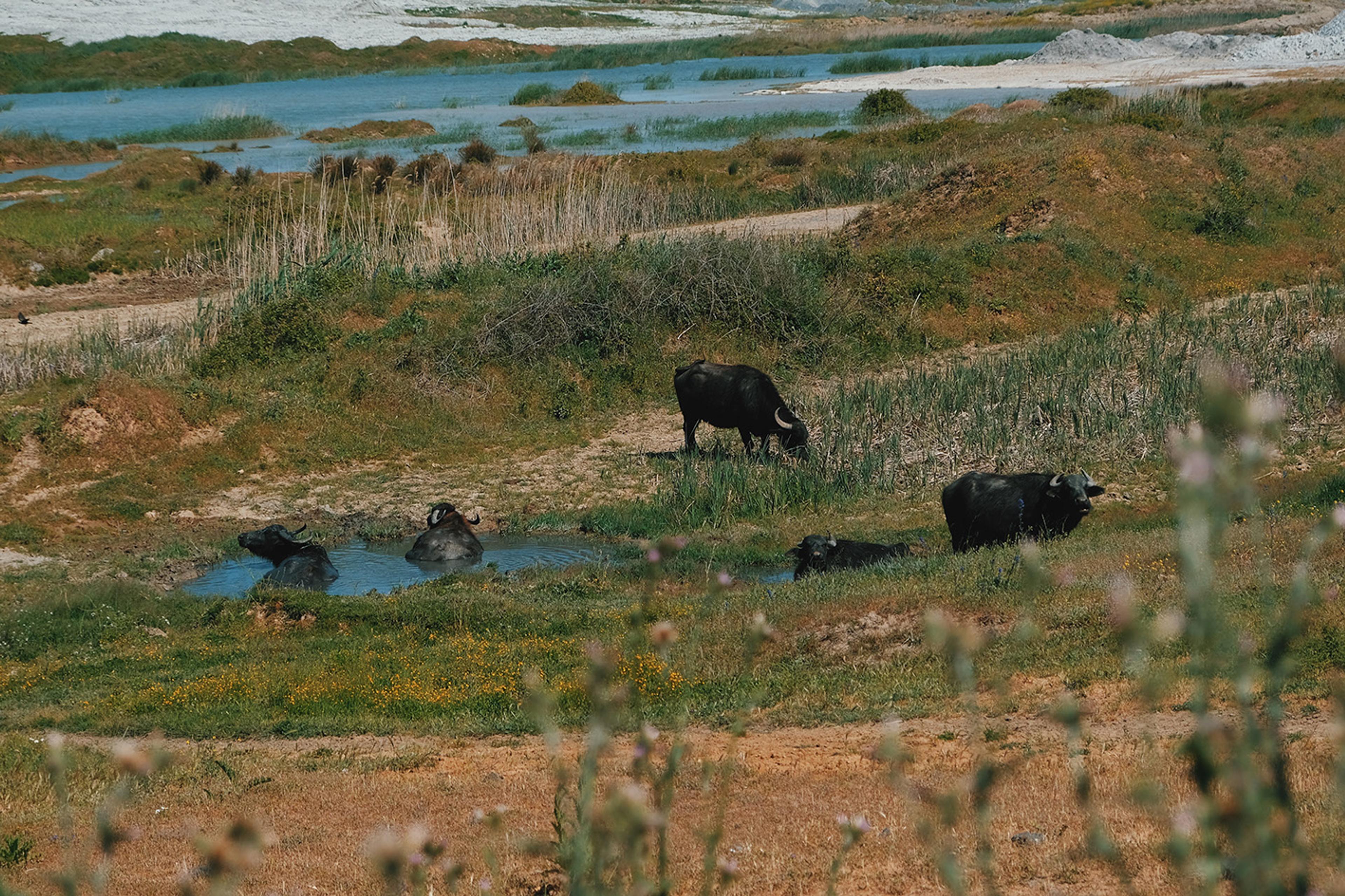
Wetlands, moors, marshes, swamps, mangroves and mudflats have been drained to ‘improve’ land for centuries, despite the importance of their biodiversity, filtering capacity, and buffering against flooding. In the past decades these landscapes have been recognised for contributing towards climate resilience. With 2026 declared the UN Year of Rangelands and Pastoralists, new international focus has been put on free roaming space and historical transhumance routes. The wetlands of Istanbul are not any different. Knowledge brought by Bulgarian herders in Ottoman times, and Turks exiled from Greece after the 1923 population exchange, boosted buffalo milk as an essential ingredient. Since 2013, the region has seen urbanisation encroaching more and more the lands of the Buffalo, fragmenting the grazing commons as a side-effect. Through the study of metabolic interactions across species the Station works to preserve the food and ecological heritage of the wetlands, herders and their pastoralist ways of life.

Çamuralem Dessert Shop
Water buffalo milk is a quintessential ingredient in Turkish cuisine that relies on wetland habitats. These peripheral landscapes to the city are culturally diverse and deserve the highest protection, but as the wetlands are increasingly encroached by urbanisation, pastures and roaming corridors are also shrinking or fully disappearing. The Station's goal is to support this unique ecosystem through the celebration of its food traditions and the re-connection between herders and consumers. Guests are invited to Çamuralem to discuss and taste ongoing research on the history, environmental significance and culinary heritage of Istanbul’s wetlands and the buffalos that inhabit them. In collaboration with Ek Biç Ye Iç, traditional buffalo milk products such as kaymak, yoghurt, muhallebi and sütlaç, are served alongside a display of pastureland grasses and buffalo songs.
The space includes a series of metabolic studies by ethnomusicologist Mustafa Avcı, ornithologist Melisa Bal, water expert Akgün İlhan, ecologist Itri Levent Erkol, Anadolu Meraları, and botanist Burçin Çıngay, originally part of Wallowland, a project by Cooking Sections commissioned by the 17th Istanbul Biennial.
Manda Festivali / Water Buffalo Festival
After the first edition of the water buffalo festival in September 2022—with a specially commissioned song performed by Gülinler—stay tuned for next year's edition highlighting the cultural and ecological role of buffalo herding and the importance of maintaining pastoralist routes. Expect guided walks and workshops, as well as tasting of buffalo milk dishes and musical performances together with the buffalos of Arnavutköy.
You can listen to Mustafa Avcı's selection of buffalo songs in Turkish, Kurdish, Armenian, Greek, and Bulgarian here.
The Istanbul Wetlands Station is part of Water Buffalo Commons, a project developed as part of CLIMAVORE x Jameel at RCA that reimagines foodways for drylands and wetlands in the climate crisis. It advances ecological networks to produce new knowledge and action towards spatial justice.
For updates on activities, events, workshops, and breaking news, subscribe to our newsletter or follow us on social media.



